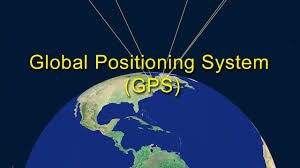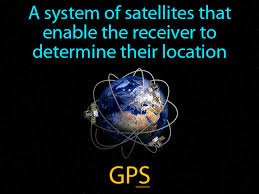Understanding GPS: Global Positioning System Explained
Introduction to GPS
The Global Positioning System (GPS) is a satellite-based navigation system that provides location and time information to a GPS receiver anywhere on Earth. This technology is crucial in various fields, including navigation, mapping, and even scientific research. The GPS operates through a constellation of satellites orbiting Earth, transmitting signals that GPS receivers use to calculate precise locations.
How GPS Works
The GPS system comprises at least 24 satellites orbiting Earth, constantly sending signals to ground-based receivers. These satellites work together, and by receiving signals from multiple satellites, a GPS receiver can determine its exact location. The process involves calculating the time it takes for signals to travel from the satellites to the receiver, using this data to compute the receiver’s position through triangulation.
Applications of GPS Technology
GPS technology has diverse applications across various sectors. In transportation, it aids in navigation and route planning for vehicles and ships. In agriculture, it assists in precision farming, improving crop yields by optimizing planting patterns. Additionally, GPS is vital in emergency services, helping locate individuals in distress quickly and accurately. The technology also supports scientific research by providing accurate positioning data for geological studies and environmental monitoring.
Advancements in GPS Technology
Recent advancements in GPS technology have significantly enhanced its accuracy and reliability. Newer generations of GPS satellites feature improved signals and additional frequencies, which help reduce errors caused by atmospheric conditions and improve the overall performance of the system. Furthermore, integration with other global navigation satellite systems (GNSS) such as GLONASS and Galileo enhances global coverage and accuracy.

Why This News is Important
Significance of GPS in Modern Technology
GPS technology has revolutionized the way we navigate and interact with our environment. Its impact is felt in everyday life, from driving directions on smartphones to advanced scientific research. Understanding GPS is crucial for students preparing for government exams, as this technology intersects with various fields, including defense, transportation, and environmental science.
Impact on Various Sectors
The versatility of GPS applications makes it a key topic for students in diverse fields. In defense, GPS plays a vital role in navigation, surveillance, and military operations. For those in the transportation sector, knowledge of GPS is essential for understanding route optimization and logistics management. The advancements in GPS also highlight the importance of technological progress in enhancing precision and reliability in various applications.
Historical Context
Development of GPS Technology
The development of GPS began in the 1970s with the launch of the first satellites by the U.S. Department of Defense. Initially designed for military use, the system became fully operational in the 1990s, with the technology being made available for civilian use. The transition to civilian applications marked a significant milestone, expanding the use of GPS beyond military operations to everyday navigation and various scientific applications.
Evolution and Expansion
Over the years, GPS technology has evolved from its initial design to a more sophisticated system with global coverage. The introduction of newer satellites and improved signal processing techniques has enhanced the system’s accuracy and reliability. The integration of GPS with other global navigation systems has further expanded its capabilities, making it an indispensable tool in modern technology.
Key Takeaways from GPS: Global Positioning System
| Serial Number | Key Takeaway |
|---|---|
| 1 | GPS stands for Global Positioning System and is a satellite-based navigation system. |
| 2 | The system operates through a constellation of at least 24 satellites orbiting Earth. |
| 3 | GPS technology has applications in various fields, including transportation, agriculture, and emergency services. |
| 4 | Recent advancements in GPS include improved satellite signals and integration with other global navigation systems. |
| 5 | Understanding GPS is crucial for students as it intersects with defense, transportation, and environmental science. |
Important FAQs for Students from this News
1. What does GPS stand for?
GPS stands for Global Positioning System, which is a satellite-based navigation system that provides location and time information to receivers on Earth.
2. How does GPS technology work?
GPS technology works by using a constellation of at least 24 satellites that orbit Earth. These satellites send signals to GPS receivers, which calculate the receiver’s exact location by measuring the time it takes for the signals to travel from the satellites.
3. What are the primary applications of GPS?
GPS is used in various applications including navigation for vehicles and ships, precision farming, emergency services, and scientific research. It aids in route planning, crop management, locating individuals in distress, and providing accurate positioning data for environmental studies.
4. What advancements have been made in GPS technology?
Recent advancements include improved satellite signals, additional frequencies, and integration with other global navigation systems like GLONASS and Galileo. These improvements enhance accuracy, reliability, and global coverage.
5. Why is understanding GPS important for government exams?
Understanding GPS is important as it intersects with multiple fields relevant to government exams, including defense, transportation, and environmental science. Knowledge of GPS technology is crucial for positions in these sectors.
Some Important Current Affairs Links

















